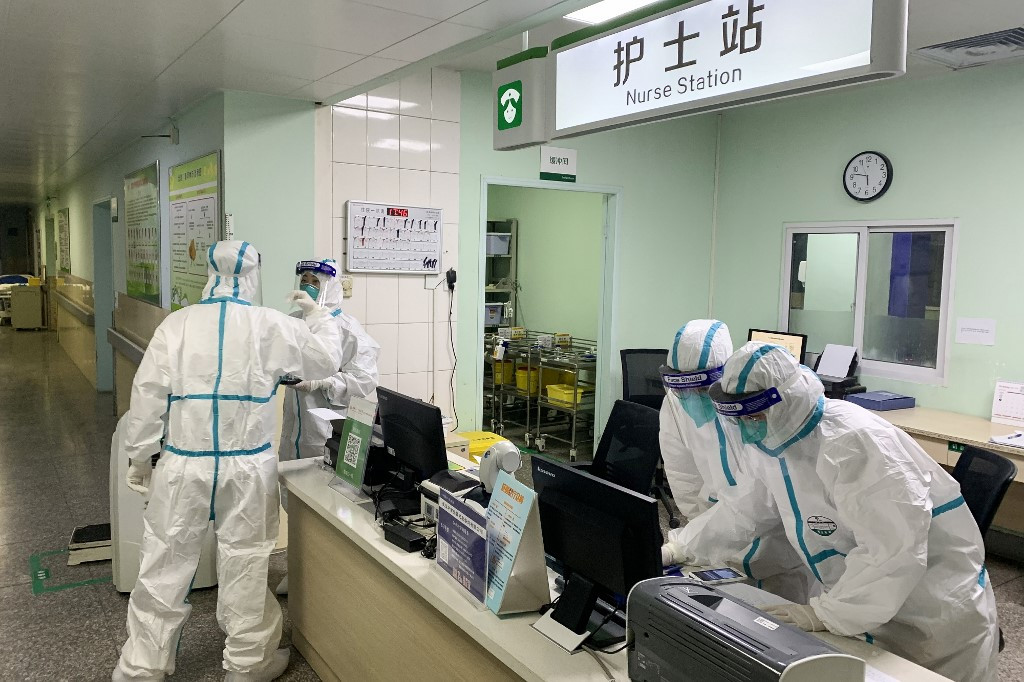Popular Reads
Top Results
Can't find what you're looking for?
View all search resultsPopular Reads
Top Results
Can't find what you're looking for?
View all search resultsNew coronavirus study places incubation period at around 5 days
Change text size
Gift Premium Articles
to Anyone
T
he period between exposure to the new coronavirus that originated in China and symptoms is 5.2 days on average, but varies greatly among patients, according to one of the largest studies yet published on the deadly epidemic.
While admitting that the estimate is "imprecise," the Chinese team behind a paper published in the New England Journal of Medicine (NEJM) on Wednesday said their findings support a 14-day medical observation period for people exposed to the pathogen.
The World Health Organization said in an update Monday that the incubation period ranged from between two and 10 days before symptoms like fever, cough, shortness of breath and acute respiratory distress emerged.
The incubation period estimate in the new study was based on 10 patients.
The researchers also studied the virus's first 425 patients in order to establish two other fundamental characteristics of the outbreak.
Since it first emerged in Wuhan in December, the number of cases of the 2019 Novel Coronavirus doubled every 7.4 days, the researchers wrote.
They also estimated that each infected person then infected an average of 2.2 other people, a figure known as the basic reproductive number, or R0 (pronounced "R-naught").
The figure doesn't predict how big an epidemic will eventually be, but is a useful measure nonetheless. In this case, it is relatively low: close to the seasonal flu (around 1.3), much less than the measles (12 or higher) and comparable to the SARS-epidemic of 2002-2003 (3).
The team also found that human-to-human transmission had been occurring among close contacts since the middle of December 2019.
The Chinese findings echo research by a team in the Netherlands that found an incubation period of 5.8 days, with large variations.
And a 27-year-old Vietnamese man who was infected by his father who had traveled to Wuhan showed symptoms in around three days, according to a letter published in NEJM.
In the major Chinese study, half of the 425 cases were patients over the age of 60, and none were under 15 years old.










